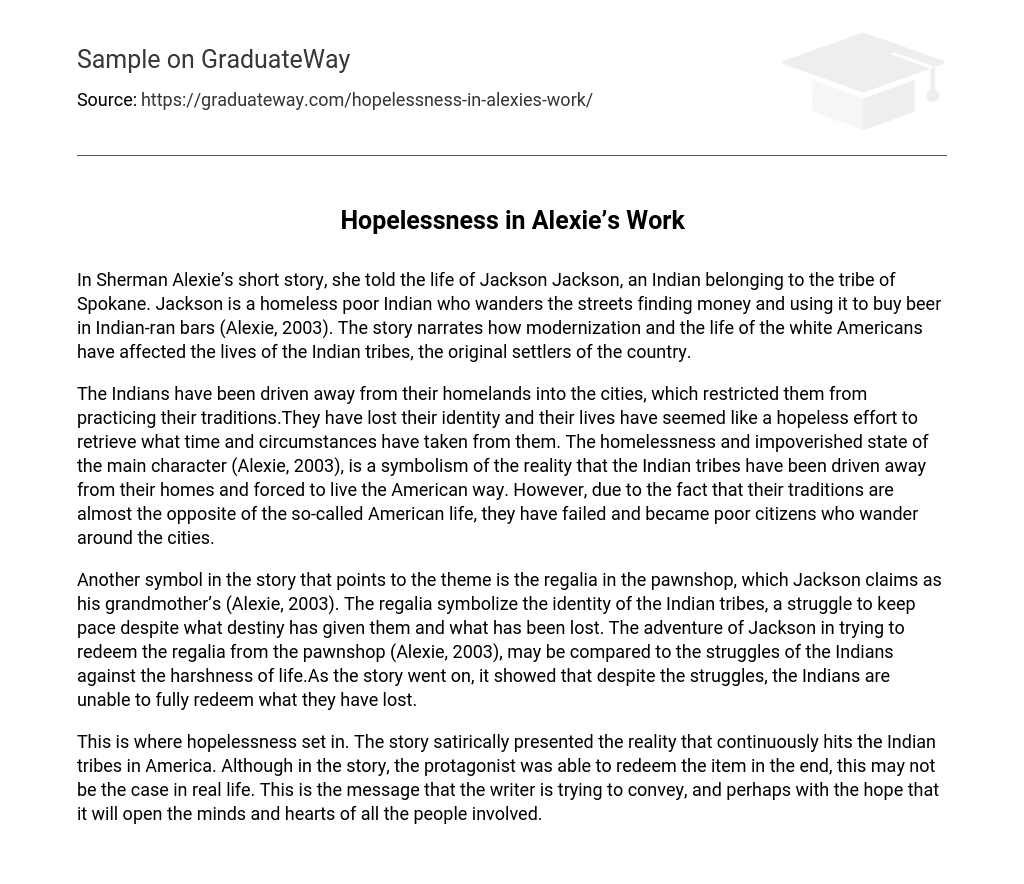In Sherman Alexie’s short story, she told the life of Jackson Jackson, an Indian belonging to the tribe of Spokane. Jackson is a homeless poor Indian who wanders the streets finding money and using it to buy beer in Indian-ran bars (Alexie, 2003). The story narrates how modernization and the life of the white Americans have affected the lives of the Indian tribes, the original settlers of the country.
The Indians have been driven away from their homelands into the cities, which restricted them from practicing their traditions.They have lost their identity and their lives have seemed like a hopeless effort to retrieve what time and circumstances have taken from them. The homelessness and impoverished state of the main character (Alexie, 2003), is a symbolism of the reality that the Indian tribes have been driven away from their homes and forced to live the American way. However, due to the fact that their traditions are almost the opposite of the so-called American life, they have failed and became poor citizens who wander around the cities.
Another symbol in the story that points to the theme is the regalia in the pawnshop, which Jackson claims as his grandmother’s (Alexie, 2003). The regalia symbolize the identity of the Indian tribes, a struggle to keep pace despite what destiny has given them and what has been lost. The adventure of Jackson in trying to redeem the regalia from the pawnshop (Alexie, 2003), may be compared to the struggles of the Indians against the harshness of life.As the story went on, it showed that despite the struggles, the Indians are unable to fully redeem what they have lost.
This is where hopelessness set in. The story satirically presented the reality that continuously hits the Indian tribes in America. Although in the story, the protagonist was able to redeem the item in the end, this may not be the case in real life. This is the message that the writer is trying to convey, and perhaps with the hope that it will open the minds and hearts of all the people involved.





